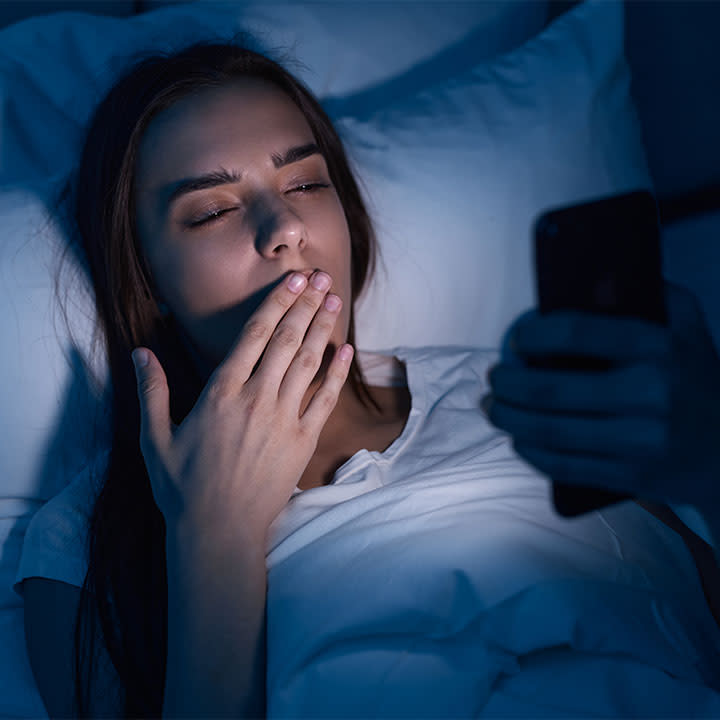You Should Stop Doing This Before Bed If You Want To Sleep Through The Night, According To Experts

A good night’s sleep is crucial for a good day. If you have trouble falling asleep and staying asleep, you may find it difficult to focus, you could experience feelings of depression or anxiety, and over time, you may even be at risk of health issues like diabetes and stroke. For this reason, perfecting a nighttime routine that can help you get the most restful sleep possible is essential to your overall health. And in addition to incorporating healthy habits like meditation and breathing exercises into your routine, breaking unhealthy habits is also important. In fact, there’s one common bedtime habit that health and sleep experts say you should kick to the curb immediately if you want to sleep well at night: using electronic devices before bed.
To learn more about the effects of scrolling on devices before bed and how blue light effects your sleep, we spoke to sleep science coach Tom Greenspan, CEO of VS Mattress; functional medicine health coach Jenny Smith; and Clinical-Community Psychologist Aisha Dixon-Peters. They broke it all down for us; find their expert insight below!
READ MORE:
2 Sleeping Apps That Practically Guarantee A Good Night’s Rest
5 Life-Changing Tips You Didn’t Know Could Relieve Inflammation And Arthritis Pain

Using electronics before bed
When you’re getting ready to hit the hay, it’s only natural (and in fact healthy) to do some relaxing activities that will help you unwind at the end of a long day. However, if those activities include scrolling through social media or streaming your favorite show in bed, you’re likely actually setting yourself up for a worst night’s sleep due to blue light exposure.
“One of the biggest mistakes I see people make before bed is not disconnecting from their electronics,” Greenspan tells us. It all comes down to the role light, and blue light in particular, plays in your body’s hormone production. “The blue light emitted by TVs and cell phones can disrupt our natural sleep hormone, melatonin, making it difficult to fall asleep and stay asleep throughout the night,” he warns.

Smith agrees, explaining further: “When our eyes are exposed to blue light, it tricks our brain into thinking it’s daytime and shuts off melatonin production,” she says. “Our brains naturally produce melatonin to help us sleep. However, if we expose our eyes to blue lights from our cell phones, iPads, or TVs, we will not get the melatonin we need to fall asleep naturally. This could also raise our cortisol levels, making it difficult to sleep through the night.” Yikes!
“Sleeping with or near phones can adversely affect sleep due to the output of blue light as well as the disruption caused by calls, emails, texts, social media, and other app alerts coming through,” Dixon-Peters adds.
In general, it’s important to keep your circadian rhythm regulated by prioritizing ample amounts of morning light and limiting your exposure to light in the evening. “Light is stimulating and therefore should be off while sleeping–including avoiding blue light from personal devices before bed–and it is beneficial to take in natural light in the morning to stimulate rising,” Dixon-Peter tells us.
Ultimately, although resisting the pull of your devices can be difficult, it’s in your best interest to set limits before bed. “To get a better night's rest, try to turn off all electronic devices at least 30 minutes before bed. This will help your body relax and signal your brain that it's time for sleep,” Greenspan concludes. Noted!

